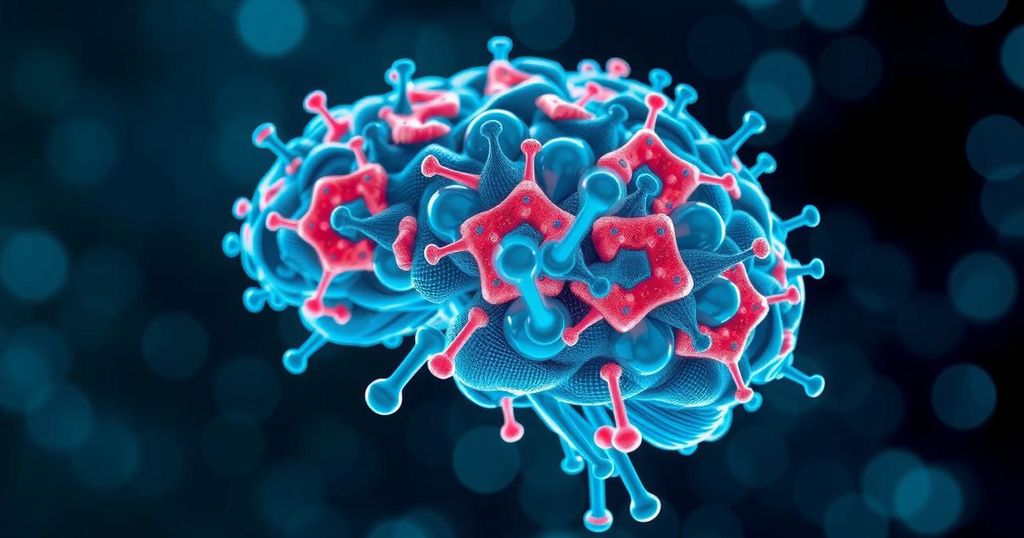AI
Science
Tech
ANDREW BEAM, ARTIFICIAL INTELLIGENCE, BEAM, COUNTWAY LIBRARY, DEPARTMENT OF BIOMEDICAL INFORMATICS, ENVIRONMENTAL SUSTAINABILITY, FLAGSHIP LABS 97, INC, GILBERT S. OMENN, HARVARD, HARVARD CHAN, HARVARD MEDICAL SCHOOL, HMS, LEMOS, RESEARCH, SAMANTHA, SCIENCE, TECHNOLOGY, VENTURE CAPITAL
Nina Oliviera
0 Comments
Exploring AI’s Role in Biomedical Discovery: Insights from Andrew Beam
On December 3rd, Dr. Andrew Beam will present at Harvard’s Fifth Annual Gilbert S. Omenn Lecture, focused on the intersection of artificial intelligence and biomedical discovery. He will discuss the paradox of biomedical AI systems, which lack the scalability of larger models but excel through tailored inductive biases. The lecture will also critique the limitations of large language models in scientific innovation without experimental capabilities, emphasizing a need for AI systems to engage in hypothesis testing.
In the realm of biomedical science, the dawning influence of artificial intelligence (AI) heralds tales of transformation and potential. On December 3rd, at the esteemed Harvard Chan School, Dr. Andrew Beam, the Chief Technology Officer at Flagship Labs 97, Inc., will illuminate the intricacies of this intriguing synergy during the Fifth Annual Gilbert S. Omenn Lecture. His insights, gathered from a wealth of research on protein diffusion models, will delve into how AI catalyzes breakthroughs, particularly in the realms of protein structure prediction and generative modeling of biological systems.
Yet, amidst these successes, an enigma arises: unlike sprawling large language models, biomedical AI systems have faced the paradox of diminishing returns as they scale. Dr. Beam highlights that instead of sheer size, the art of biomedical AI lies in the deliberate crafting of inductive biases, allowing for efficient learning from limited datasets. This distinction uncovers the fundamental challenge of synthesizing knowledge within the scientific world, where breakthroughs often hinge not just on data but on the ability to design rigorous experiments that can test new hypotheses.
As Dr. Beam prepares to share his findings, he will also critically appraise the claims surrounding large language models that promise to revolutionize scientific discovery. While these models can easily sift through and synthesize vast quantities of scientific literature, they are shackled by the absence of experimental frameworks necessary for genuine innovation. Without capabilities to design and conduct real-world experiments, AI systems are confined to existing knowledge, unable to break through the barriers of hypothesis and discovery.
Artificial intelligence has emerged as a powerful catalyst in biomedical discovery, unlocking the potential for significant advancements in understanding complex biological systems. Recent strides in AI applications, particularly regarding protein modeling, underscore its importance in the life sciences. However, the juxtaposition of AI models and their effectiveness raises crucial questions about the methodologies used and the necessity for systems that can engage directly in experimental research, making the study of this synergy between AI and science particularly relevant today.
In summary, Dr. Andrew Beam’s upcoming lecture at Harvard promises to offer profound insights into the advancing interplay between artificial intelligence and biomedical science. Through exploring the nuances of how biomedical AI deviates from larger models, he invites a reevaluation of our approaches to scientific discovery. The call for AI systems capable of engaging with experimental methods highlights a pivotal shift needed in the horizon of scientific research, enhancing the quest for novel knowledge and breakthroughs.
Original Source: www.hsph.harvard.edu




Post Comment